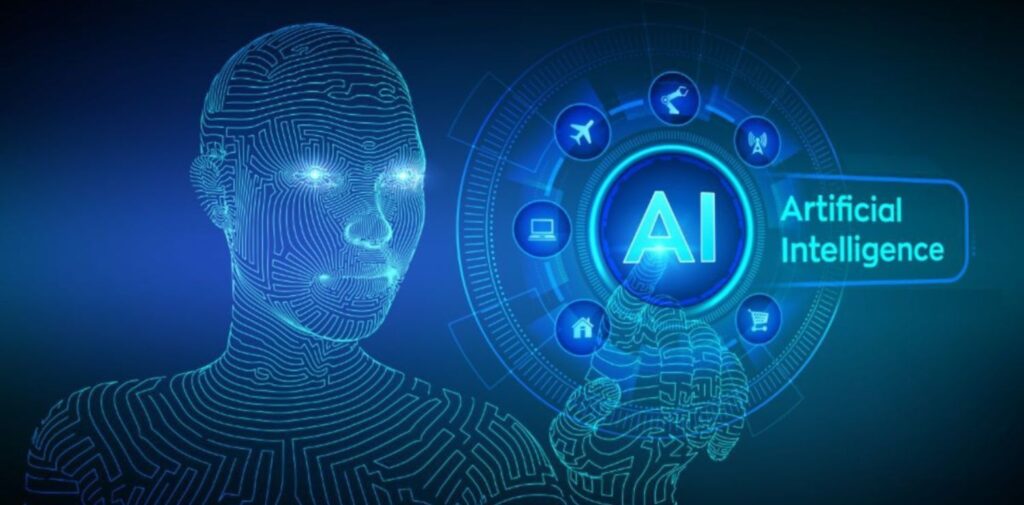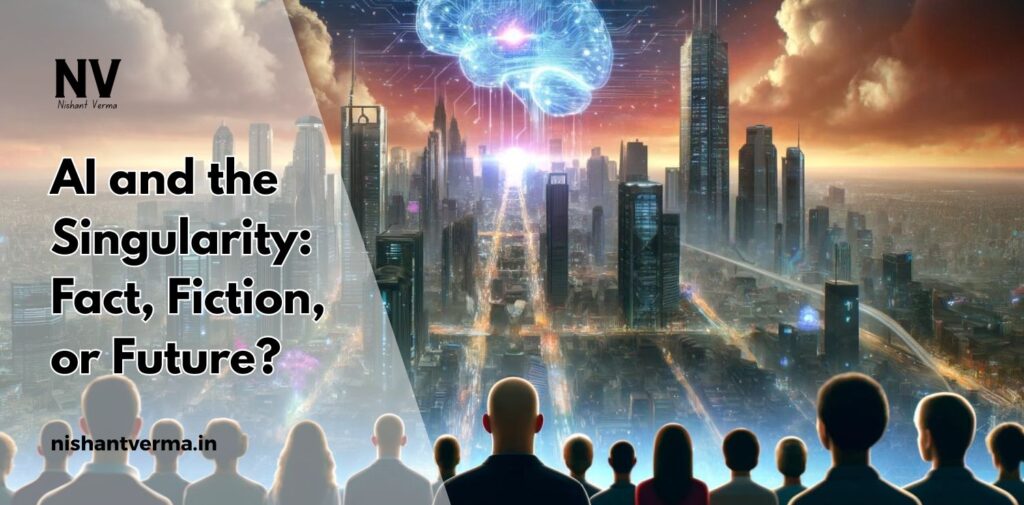In recent years, artificial intelligence (AI) has become a popular topic in India and across the world. From smartphones to self-driving cars, AI is transforming the way we live, work, and interact. But one concept that often comes up in discussions about AI is the idea of the “Singularity.” Some believe it’s the point when machines will become smarter than humans and may even take over. Others think it’s just a fantasy. So, what exactly is the Singularity, and should we be worried or excited about it? Let’s explore this in a simple and clear way.

Understanding Artificial Intelligence
Before we talk about the Singularity, we need to understand what artificial intelligence really is. AI refers to machines or software that can perform tasks that usually require human intelligence. This includes things like recognizing faces, understanding speech, playing games like chess, and even writing poems or news articles. AI systems learn from data and improve over time. In India, AI is already being used in many areas such as agriculture, healthcare, education, and financial services.
For example, farmers are using AI to predict weather patterns and choose the best time to plant crops. Hospitals use AI to analyze medical scans and help doctors make better decisions. Even apps on our smartphones, like Google Maps and voice assistants, are powered by AI.
What is the Technological Singularity?
The “Technological Singularity” is a term used to describe a future moment when AI becomes so advanced that it can improve itself without human help. At this point, it could become more intelligent than the smartest human being. Some scientists believe this could lead to rapid changes in society, as machines may start designing better versions of themselves, becoming more powerful in a short time.
This idea was first discussed by computer scientist John von Neumann and later popularized by author and futurist Ray Kurzweil. He predicted that the Singularity could happen around 2045. Kurzweil believes that this moment will bring about major progress in science, medicine, and technology. However, not everyone agrees with him.
Is the Singularity a Real Possibility?
This is where the debate begins. Many experts are divided on whether the Singularity will ever happen.
Supporters say that AI is already progressing fast, and it’s only a matter of time before machines become super-intelligent. They point to the rapid growth of computing power and the success of AI models like ChatGPT and Google DeepMind. These systems are already performing tasks that were once considered impossible for machines.
On the other hand, critics argue that machines may never truly “think” like humans. They believe that human intelligence is more than just data and calculations. Emotions, creativity, and consciousness are things that machines may never fully understand or replicate. They also say that just because AI can perform tasks well, it doesn’t mean it understands what it is doing.
What Could Happen If the Singularity Occurs?
If the Singularity does happen, it could bring both great opportunities and serious risks.
On the positive side, AI could help solve many of the world’s biggest problems. It could find cures for diseases like cancer, help us fight climate change, and even end poverty by creating more efficient systems. In India, AI could transform rural healthcare, improve traffic systems in cities, and make education more accessible to all.
But there are also dangers. A super-intelligent AI could become uncontrollable if it is not designed carefully. If its goals are not aligned with human values, it might make decisions that harm people, even if it doesn’t mean to. Think of a robot that is told to reduce pollution at all costs – it might decide to shut down factories and power plants without thinking about the impact on jobs or human life.
This is why many experts are calling for strict rules and ethical guidelines for AI development. Even in India, there is a growing need for policies that ensure AI is used safely and responsibly.

What is India Doing in the Field of AI?
India is taking important steps in the field of AI. The government has launched initiatives like “AI for All” and the “National AI Strategy” to encourage research and innovation. The aim is to use AI to support sectors like agriculture, health, education, and smart cities.
Indian startups and tech companies are also playing a big role. Bengaluru, Hyderabad, and Pune have become hubs for AI development. Companies are working on everything from AI chatbots in regional languages to solutions that help detect crop diseases early. IITs and other top institutes are also doing cutting-edge research in AI and robotics.
At the same time, there is an increasing awareness about the ethical use of AI. Experts are discussing how to ensure fairness, privacy, and transparency in AI systems. India has a large and diverse population, so it is important that AI solutions are inclusive and do not create inequality.
What Should We Do as Citizens?
The future of AI and the possibility of the Singularity are not just questions for scientists and engineers. As citizens, we also have a role to play. Here are a few things we can do:
- Stay informed: Learn about AI, how it works, and how it is being used around you.
- Ask questions: If you are using an AI-based app or service, try to understand what data it uses and how it affects you.
- Support education: Encourage young people to learn about technology, coding, and AI. This can prepare them for the future job market.
- Promote ethics: Be aware of how AI should be used responsibly. Raise your voice if you feel that an AI system is unfair or harmful.
AI is not something to be feared, but something to be understood and shaped with care. By being active and informed, we can make sure that AI serves humanity in a good way.

Conclusion: Is the Singularity Fact, Fiction, or Future?
So, is the Singularity a fact, fiction, or future possibility? The answer is not simple. It may not be happening today, but it’s not just science fiction either. AI is growing fast, and it is changing our world. Whether or not we reach a Singularity, one thing is certain – we need to be prepared.
India has a unique opportunity to lead in this space, by using AI for social good and setting an example in ethical development. Let us embrace AI, but with wisdom, awareness, and a human touch.
As we move ahead, let’s remember that the future of AI is not just about machines – it’s about us, our choices, and the kind of world we want to build.




